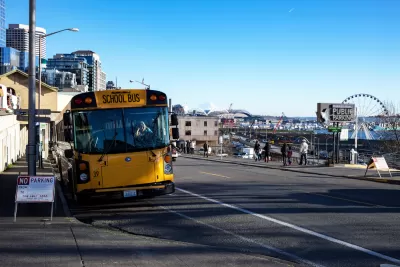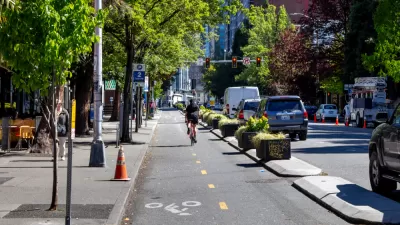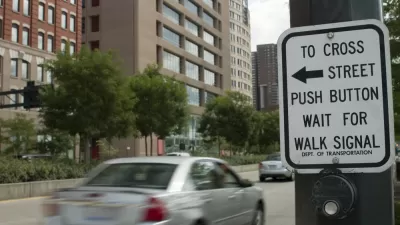Issues about which bus schedules work best for students and families, and how changes to the school bus system should be funded, came to a head in Seattle this week.

Hayat Norimine reports: "After council members Bruce Harrell and Tim Burgess opposed using the Families and Education Levy to fund a new school bus system, council members went back to the drawing board—and came up with using Seattle Department of Transportation funds instead."
The two-tier system would simplify the times for the bus system (8 and 9 am) compared to the current three-tier system (7:55, 8:45, and 9:35 am). The current system has been in place for a year, after school officials switched the schedules to better fit students' sleeping patterns and improve engagement during the school day. "Officials and parents said switching the schedules, again, to a two-tier system would better accommodate working families, especially those with kids in multiple grades," according to Norimine.
The opposition to using funding from the Families and Education Levy came from concern that the levy is intended for programs that close the opportunity gap for children in poverty and people of color.
As of this writing, a decision about funding still needed to be made. [Update: the City Council approved the funding and schedule changes.]
FULL STORY: Council Could Use SDOT Funds for New School Bus System

Alabama: Trump Terminates Settlements for Black Communities Harmed By Raw Sewage
Trump deemed the landmark civil rights agreement “illegal DEI and environmental justice policy.”

Planetizen Federal Action Tracker
A weekly monitor of how Trump’s orders and actions are impacting planners and planning in America.

The 120 Year Old Tiny Home Villages That Sheltered San Francisco’s Earthquake Refugees
More than a century ago, San Francisco mobilized to house thousands of residents displaced by the 1906 earthquake. Could their strategy offer a model for the present?

In Both Crashes and Crime, Public Transportation is Far Safer than Driving
Contrary to popular assumptions, public transportation has far lower crash and crime rates than automobile travel. For safer communities, improve and encourage transit travel.

Report: Zoning Reforms Should Complement Nashville’s Ambitious Transit Plan
Without reform, restrictive zoning codes will limit the impact of the city’s planned transit expansion and could exclude some of the residents who depend on transit the most.

Judge Orders Release of Frozen IRA, IIJA Funding
The decision is a victory for environmental groups who charged that freezing funds for critical infrastructure and disaster response programs caused “real and irreparable harm” to communities.
Urban Design for Planners 1: Software Tools
This six-course series explores essential urban design concepts using open source software and equips planners with the tools they need to participate fully in the urban design process.
Planning for Universal Design
Learn the tools for implementing Universal Design in planning regulations.
Clanton & Associates, Inc.
Jessamine County Fiscal Court
Institute for Housing and Urban Development Studies (IHS)
City of Grandview
Harvard GSD Executive Education
Toledo-Lucas County Plan Commissions
Salt Lake City
NYU Wagner Graduate School of Public Service





























